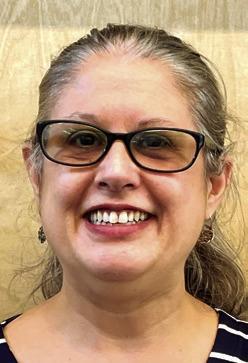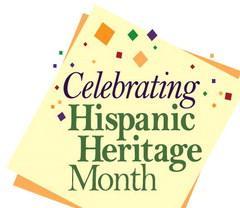
San Marcos Public Library
625 E. Hopkins St.
512-393-8200

Answers to Go
Q. What is a “dicho?”
A. The word “dicho” is a Spanish word and basically translates to “sayings” or “proverbs,” often with humor.
Every culture has, by way of oral history, proverbs and sayings that are universal in their wisdom. The Spanish language, especially that spoken by individuals from Mexico, has a very strong tradition of this — dichos. This week, as part of Hispanic Heritage Month, I want to highlight this oral history tradition. In the introduction to the children’s book “Mi Primer Libro de Dichos/ My First Book of Proverbs” by Ralfka Gonzalez and Sandra Cisneros — poet/writer, teacher and civil rights activist says, “In too many lifetimes so many things get said, it is impossible to remember who said them or what they mean sometimes. But here is a book of things said — of dichos, of sayings — gathered from many lives long ago, and passed on and on and on from one mouth to an ear and from an ear to another mouth…Some of these dichos, I am too old to understand and some I am not yet old enough. But whether you are a big child or a little child, whether they are familiar or new, dichos will fill you with a wise and foolish laughter.”
Words, well arranged, become dichos and their cousins; turns of phrase that take the dust and irritants of our daily lives and mold them into little linguistic pearls. (Keenan) Below are a few examples of some popular dichos that I found amusing and insightful: Lo que en la calle no puedes ver, en tu casa lo has de tener.
What you don’t like in others could be in your own house.
El que no monta no cae.
If you don’t ride, you can’t fall.
El que temprano se moja, tiempo tiene de secarse If you get wet early, you’ll have time to dry off.
Si después de los cin-
cuenta nada te duele, es que estás muerto.
If after you turn fifty nothing hurts, you’re dead.
Nunca nadie ha muerto por mucho descansar.
No one has ever died from resting too much.
If you like dichos, check out these books and websites:
•“It’s All in the Frijoles: 100 famous Latinos Share Real-life stories, Time-tested dichos, Favorite folktales, and Inspiring Words of Wisdom.”
•“¡Dichos! the Wit and Whimsy of Spanish Sayings” by Joseph Keenan.
•“Spanish proverbs: Dicho y hecho” - thebogotapost. com/spanish- proverbs-dicho-yhecho/ 19864/
•“Mexico’s popular sayings: A taste for dichos” mexconnect. com/articles/424-mexi co-s-popular-sayings-a-taste-for-dichos/ Suzanne Sanders is the columnist for the library. She is the Community Services Manager for the San Marcos Public Library and came from the Austin Public Library in 2015 after having served there as a librarian for over 20 years. She gratefully accepts your questions for this column.
Graphic from Metro Creative











